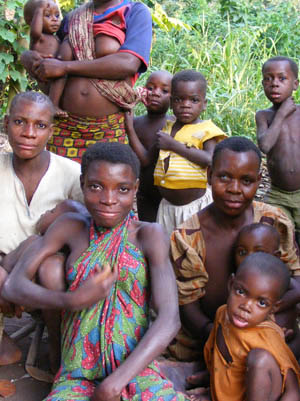The future of forest monitoring?

Forest Peoples Programme
Plans to use a state-of-the-art camera onboard a satellite to monitor deforestation levels in Africa's Congo Basin have been unveiled. The Congo is the second largest tropical forest in the world and the UN warn that at current rates 66% of it will be destroyed by 2040.
The high resolution RALCam3 camera, designed and built by UK scientists, will provide the first detailed view of the area's rate of forest cover loss.
The project is part of the Congo Basin Forest Fund, a £108m joint-initiative by the UK and Norwegian governments, which aims to curb climate change and biodiversity loss by preventing deforestation in the region.
Speaking at the launch of the scheme, UK Prime Minister Gordon Brown said: "We are pledging to work together to secure the future of one of the world's last remaining ancient forests.
"Preserving our forests is vital if we are going to reduce global emissions and tackle climate change."
Last haven
The Congo represents more than a quarter of the planet's remaining tropical rainforest and is also home to more than 50 million people, supports an estimated 10,000 plant species, 1,000 types of birds and 400 mammals.
The high definition camera will be made by a team at the UK's Rutherford Appleton Laboratory (RAL).
"We're delighted to be involved in this very important and timely project," said Nick Waltham, head of RAL's Imaging Systems Division.
"RALCam3 will provide 10-metre per pixel ground sampling from an orbit of 650 km (400 miles) altitude," he said.
"The image [width] is 88km (55 miles) thereby enabling large areas of the terrain to be imaged in one satellite pass."
Dr Waltham said the system would also have other applications, including surveillance of environmental change and offshore pollution.
The camera is one of the first projects to be supported by the fund, which is headed by former Canadian Prime Minister Paul Martin and Nobel Peace Prize winner Wangari Maathai.
"The Congo Basin Forest Fund is a joint response to a global problem whereby an innovative and consensual mechanism has been embraced," Professor Maathai explained.
"It involves various partners committed to preserve and protect one of the most unique ecosystems in the world."
The fund, which has received an initial £58m (73m euros) from the UK government and £50m (63m euros) from the Norwegian government, will support anti-logging projects in the region until 2012.